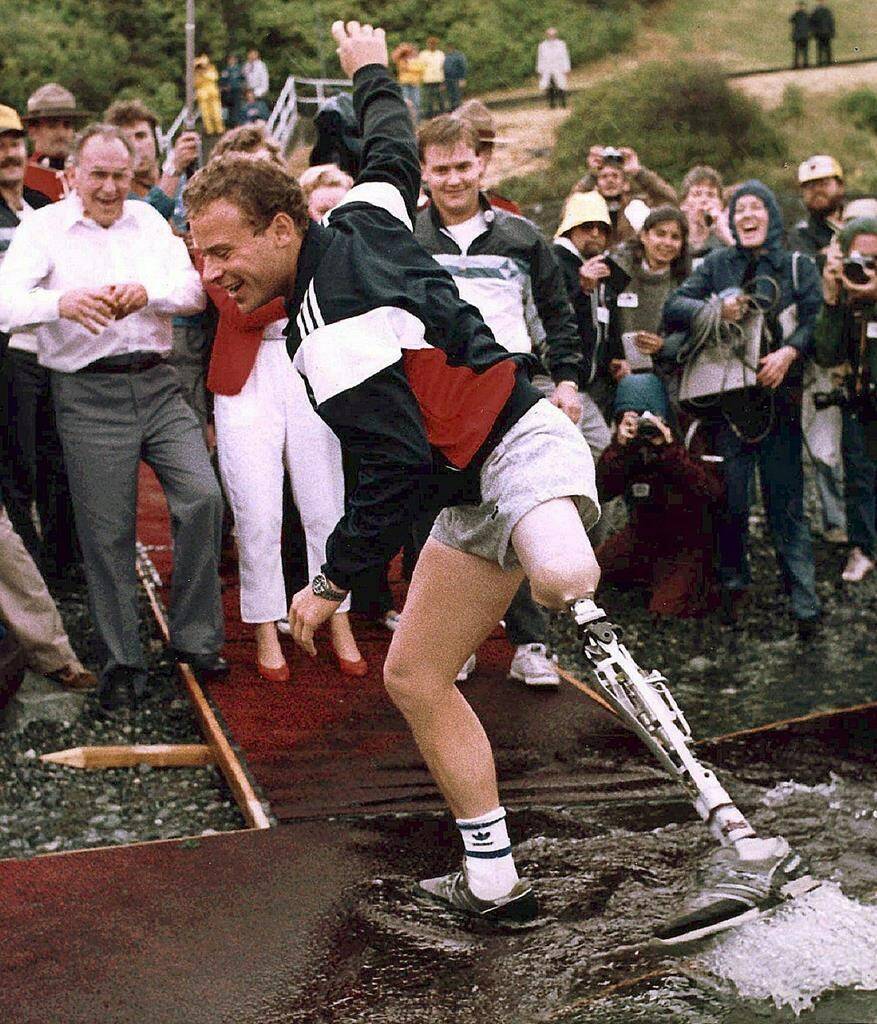Steve Fonyo, who lost his leg to cancer as a child and ran a marathon across Canada to raise millions for cancer research, has died.
He was 56.
Fonyo’s niece Melody Kruppa said he had what appeared to be a seizure in a hotel room in Burnaby, B.C., on Friday and paramedics could not revive him.
The cause of death was not clear and the family will have to wait until Tuesday or Wednesday for the coroner to assess the body due to the long weekend, Kruppa said.
“We’re in shock,” she said.
“We’re all just waiting. We’re just doing the best that we can. It’s just very hard to wait for the coroner to look at him and find out what the cause was and whether we’re going to be able to view his body. We just don’t know anything right now.”
She said Fonyo and his partner came to the Vancouver area from their home in Powell River, B.C., to get the foot on his artificial leg redone.
Fonyo lost a leg to cancer when he was 12 and became a national hero in 1985 after completing a Canada-wide marathon to raise money for cancer research, five years after Terry Fox attempted the same thing.
Fonyo was appointed an officer of the Order of Canada in 1985 at the age of 19 — the youngest person to receive the honour at the time.
But his membership was terminated in 2009 following multiple criminal convictions.
The decision sparked public outcry, with critics saying at the time he should be remembered as a hero despite his struggles later in life.
In 2015, Fonyo told The Canadian Press that he was putting his life back together after decades of drug abuse, crime and near homelessness.
At the time the runner was back in the spotlight with a documentary about his troubled life at the Toronto International Film Festival called “Hurt.”
He said the film director Alan Zweig had helped him see things he needed to work on and that his life was much more stable after his troubles.
“I need to better myself. And I’m doing that,” Fonyo said.
“I don’t think they should have taken away my Order of Canada. I think they should have been more supportive, but it’s a two-way street. I wasn’t really doing anything for myself either.”
His niece said Fonyo was her hero.
“He was 11 years older than me. I looked up to him,” she said.
“What I respected about him was that he had a lot of difficulties, but he kept going. He just persevered.”
Kruppa called on the federal government to reinstate Fonyo’s Order of Canada.
“If this isn’t possible then I will cut out the photo that I have of his medal and place it on his chest at the burial,” she said.
“If the latter is necessary then that would be a real shame.”
Maan Alhmidi, The Canadian Press

